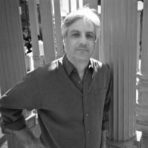Where were you for the hurriquake? I know, I know: Like all portmanteaus, it’s a contrivance, but that seems to me to be the point. If I’ve long imagined Southern California as apocalypse central, a landscape defined by the most elemental processes—including, or especially, those of its own destruction—it’s also the case that until Hurricane Hilary was interrupted or (more accurately) punctuated by a 5.1 earthquake in Ojai, I had never experienced two overlapping disturbances at once. It helped that where I live, in the Mid-City flats, neither was remotely catastrophic. At the moment of the earthquake, my neighborhood was being bathed by a warm drizzle. The air was still, without even a breeze. Later, we would be hit with wind and water. By that point, however, the temblor, which I had felt only as a single short sharp jolt, had already receded from my mind.
What interests me about hurriquake is the speed of the coinage; on the social media site formerly known as Twitter, it was trending within a few minutes of having taken place. On the one hand, that suggests our alacrity at making phrases, our desire to frame or reframe, to use language as a container, if you will. At the same time, I want to argue, there is more at stake here, for language, as anyone who works with it will recognize, can be imprecise. The words we use, the sounds and shapes they make, are attempts at representation. They can only do so much.
I say this not to dwell on the limitations but to embrace them. It is there the roots of creativity reside. If we don’t have a word for something, we invent it. If the existing terminology doesn’t illuminate our experience, we improvise. Read through such a lens, a neologism such as hurriquake becomes an act of expression, a reminder that despite its margins, language remains fluid and alive.
Something similar might be said in regard to this issue of Air/Light, which offers its own series of reframings. Fiction, essays, interviews, poetry—all of them in conversation with the circumstances they aspire to evoke. In the work gathered here, you will find a wide array of perspectives and phrasings. You will find writers recording, even actively remaking, what they see. The same sort of process, of course, also happens (it must) with nature. Earthquakes and hurricanes as editorial mechanisms, in other words. And why not? The world is always writing and rewriting itself, just as we are. The world is always making itself anew.
I rode out the afternoon of the hurriquake sitting at my desk, much as I am doing now. I kept looking out the window to see if anything was happening. I felt a delicious, if unsettling, anticipation, much as I do when I write and read. This is the sensation art is trying to provoke, isn’t it? The delirious uncertainty of being alive? All we know, all we can ever know, is our experience of the moment.
That is what Issue 8 of Air/Light seeks to explore.


